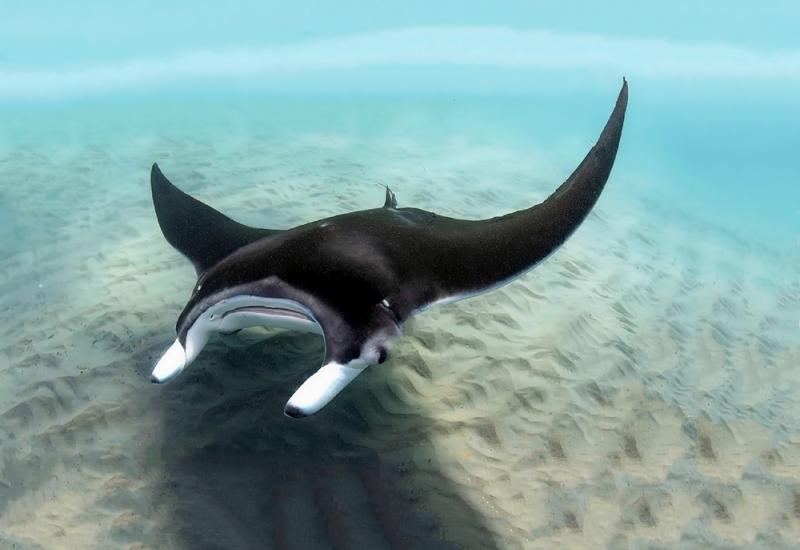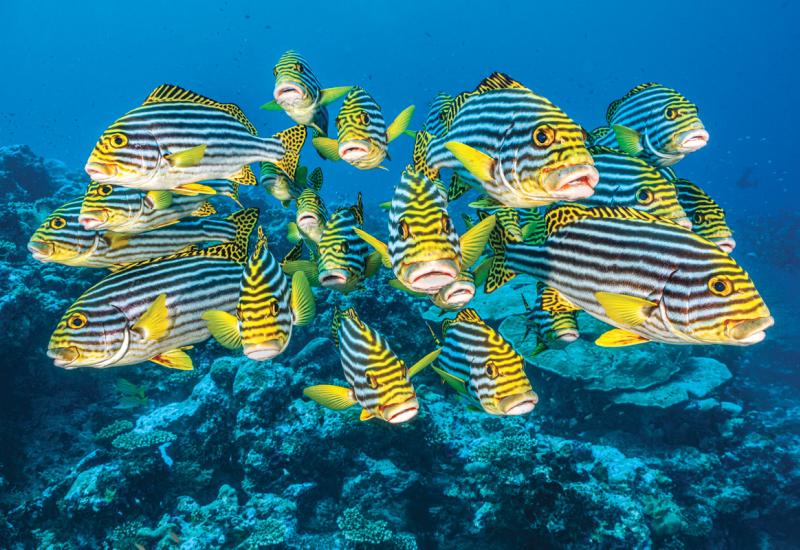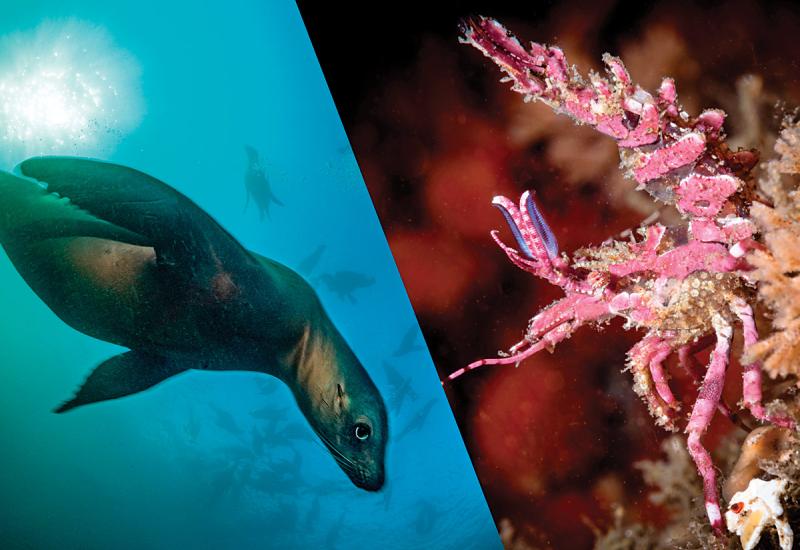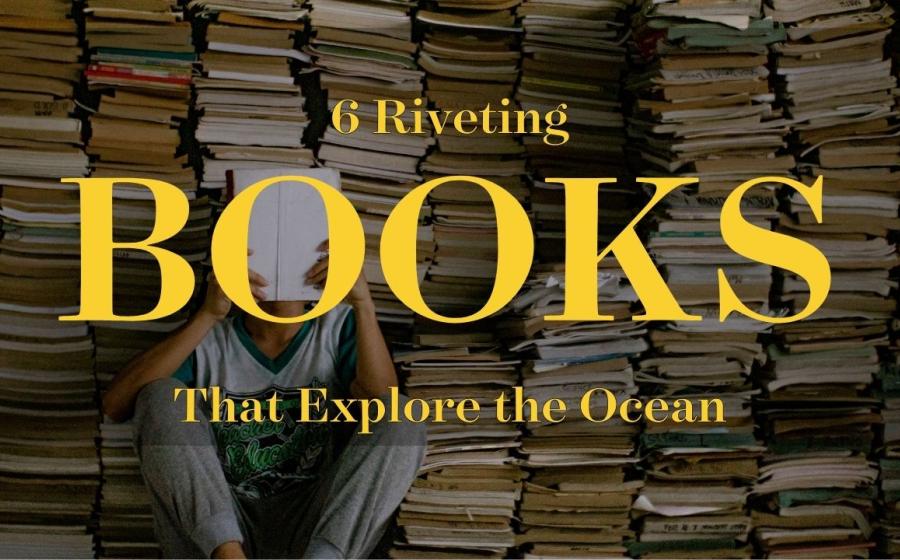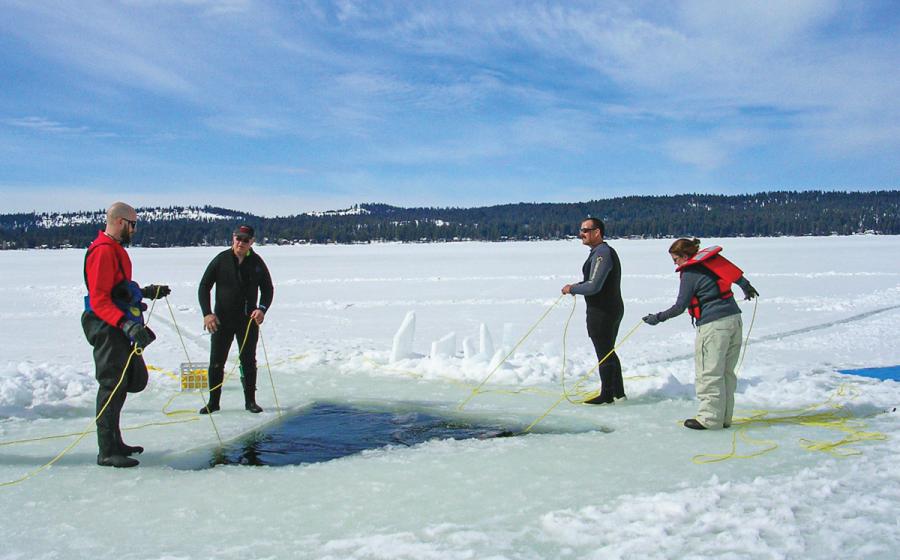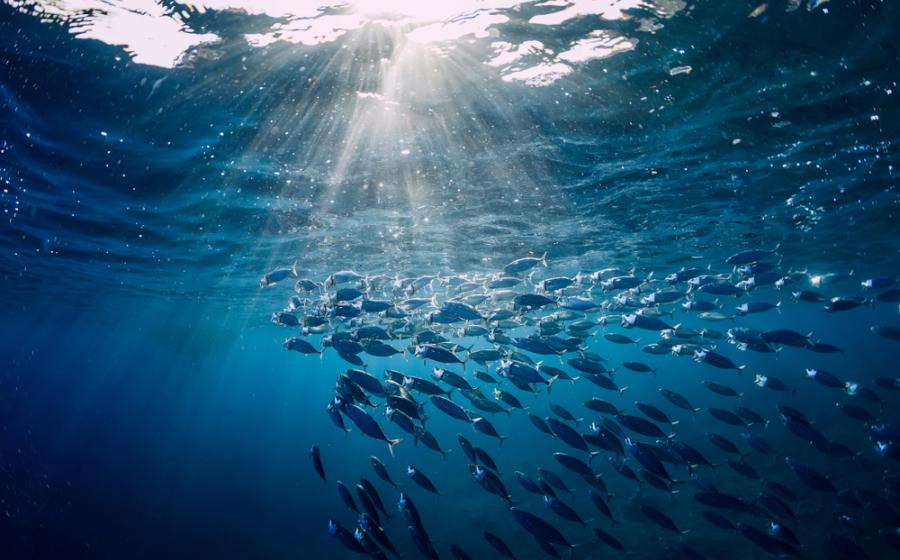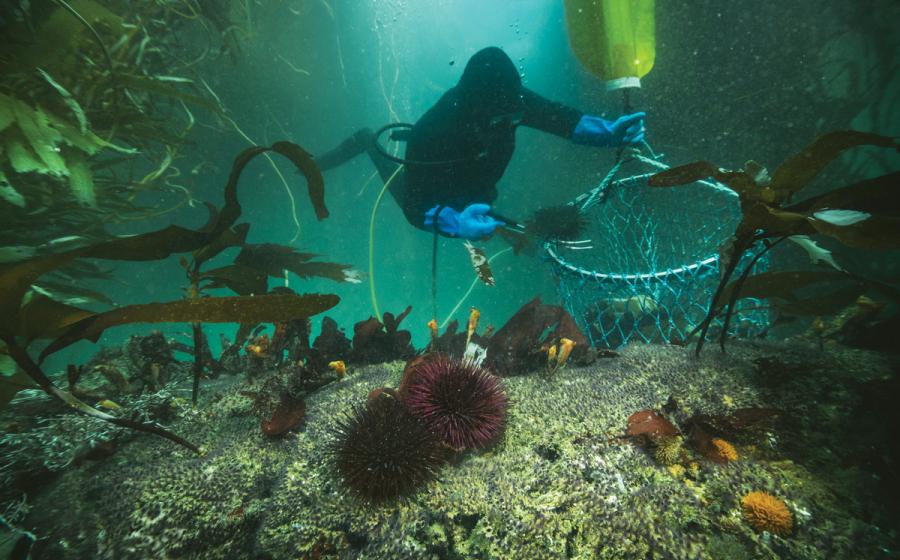Why We’re Suckers for Becoming an Octopus’s Student

Patrick WebsterA cunning and curiously colorful flamboyant cuttlefish cruises the muck flats of Lembeh Strait, Indonesia.
Oh, you’re a diver! Have you seen My Octopus Teacher?”
When you look at patterns of change in the world, from evolutionary biology to social theory, there's a concept that emerges called “punctuated equilibrium.” The idea is that species and cultures have a certain momentum, and don’t tend to change for long periods of time. And then suddenly they do change, sometimes quite substantially, egged on by calamity or innovation, adapting and reworking themselves until they reach a new floor to coast along for a while, before the next opportunity to level up arises.
General ocean awareness also follows this punctuated pattern. Every few years, a transformative piece of marine science media breaks into pop culture and creates a wave of new, sudden and overwhelming ocean connection.
These viral, salty-media inflection points drive themselves deep into the subconscious of our land-focused friends. There’s always been a pre- and post- in the salty zeitgeist after a Cousteau film, Sea Hunt, Finding Nemo or Blackfish. My Octopus Teacher is one of the most recent inflection points.
Related Reading Does Flash Photography Hurt Marine Life?
One reason for the film’s success is familiar to most of us as divers. Show friends a picture of a beautiful reefscape and a friendly fish, and they’ll ooh and aah. But tell our friends this fish is a buddy that you visit and share moments with, and they’ll ooh! and aww! We’re all suckers for a good story, after all. And few ocean critters are more charismatic than the colorful Kraken cousins known as the cephalopods.
These captivating cephalopods, squid, octopuses, cuttlefishes, nautiluses—took the highly adaptable mollusk body plan and created a cast of characters perfectly calibrated to connect with our preconception of consciousness.
On one arm, an octopus is but a glorified clam that we can relate to. On another, it’s an expressive, curious, dexterous, tactile predator whose large brain specializes in visual information. Octopuses are easy to love—they remind us of ourselves. It’s as if the ocean grabbed a mirror and held it up to our own self-image, with an adorable Cthulhu staring back.
As divers, we’re some of the fortunate few who get to audit an octopus’s classroom. Interacting with a cephalopod is a life-affirming event, partly because we know just how strange the water world is, and just how alien we are when we visit it. As with all things diving, there’s a deeper knowledge to be gained by putting the mirror away and seeing octopuses and their kin for what they are, not just what we recognize them to be.
Related Reading Marine Species Invasion or Relocation
197a.jpg)
Patrick WebsterMarket squid gather in the thousands in Monterey, California, to mate and lay eggs in the sand.
As far as we can tell, octopuses don’t see the colors they’re producing—they operate within the polarized light spectrum. Each arm is independently controlled by its own brain, processing the unimaginable amount of smell, taste and touch information that each suction cup acquires as the animal sniff-walks across the reef. Cuttlefishes use their distinctive W-shaped pupil to scan the horizontal plane for pattern-based disturbances, while color-sensitive skin pigments keep track of the cuttlefish’s own camo. Nautiluses, meanwhile, carry on the mantle of the once ocean-dominant shelled cephalopods, scavenging in the deep sea from the comfort of their neutrally buoyant spiraling biological submarine a half billion years running. And squid, our frequent night dive companions, exist in truly three-dimensional inner space as brilliant rocket ships launching into the endless water column.
For all the similarities to ourselves that we perceive in cephalopods, their perception of themselves and the world around them—their umvelt—remains beyond our comprehension. And if that’s the case for these most appreciable of inverts, what lessons could be learned from the rest of the life around us? Maybe on our next ceph-centric dive, whether it’s with the giant cuttlefishes of Southern Australia, the wonderpuses of Lembeh, the argonauts of Cozumel, or the bobtail squid of British Columbia, we should consider what ocean life can teach us about what it means to be an “Earthling.”

e8d8.jpg)
